-
#583 – Kids of the Round Table (1995)
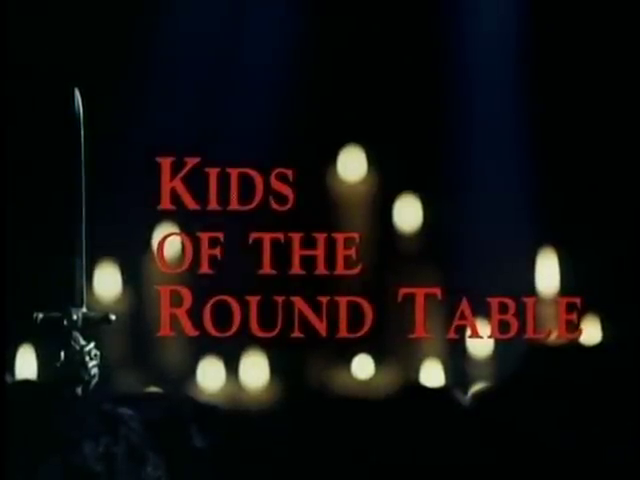
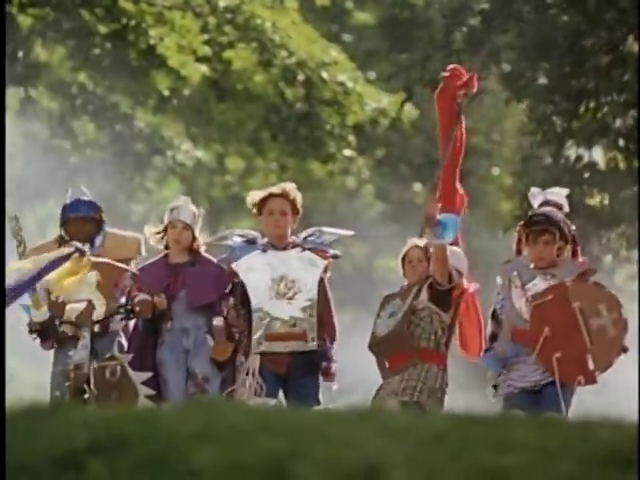
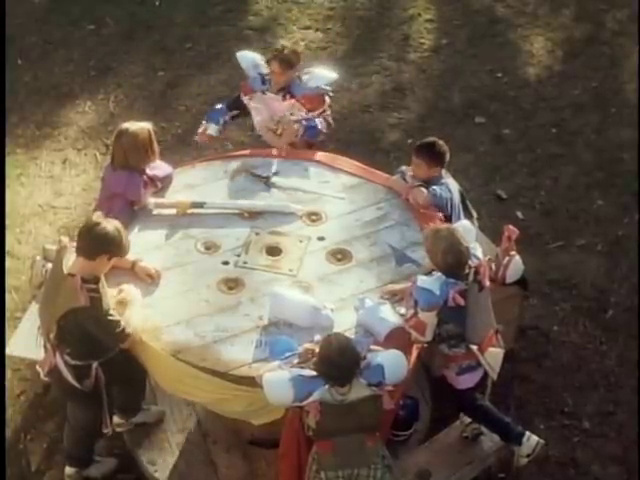
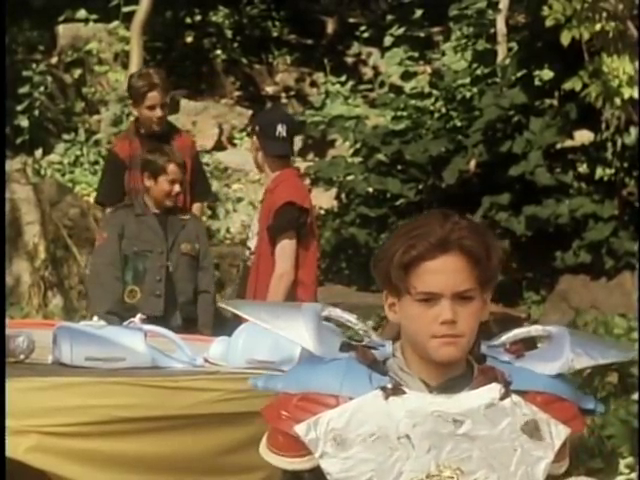
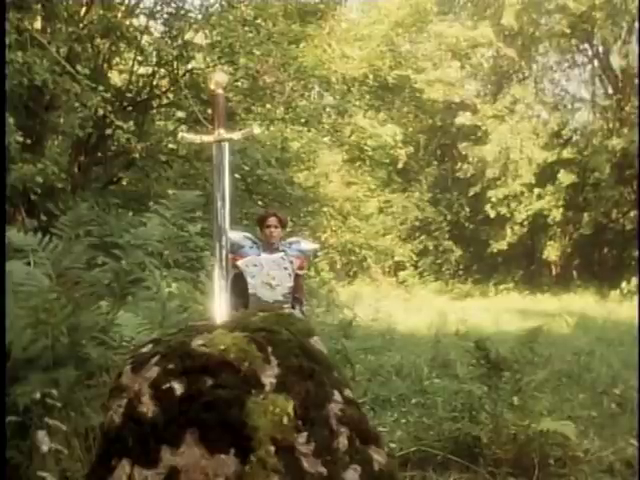
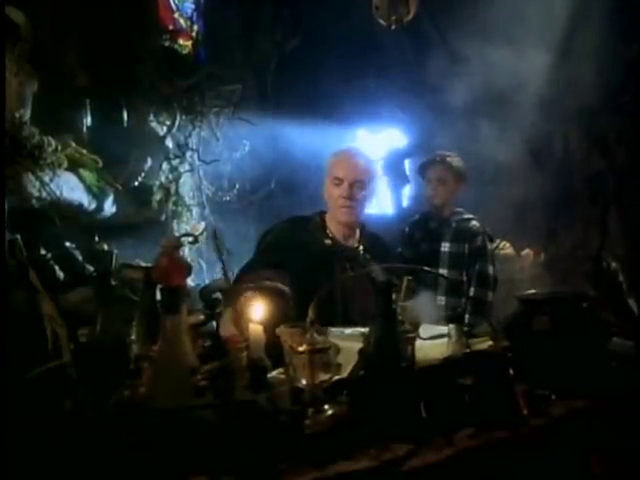
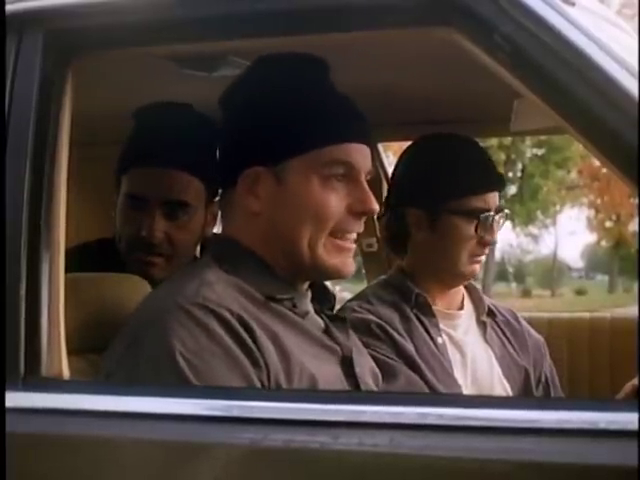
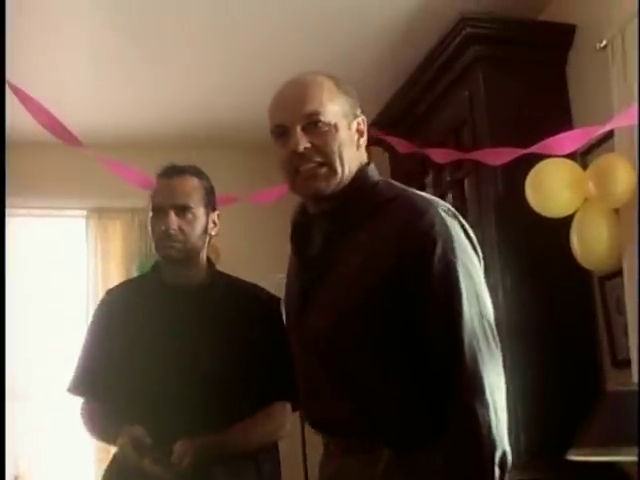
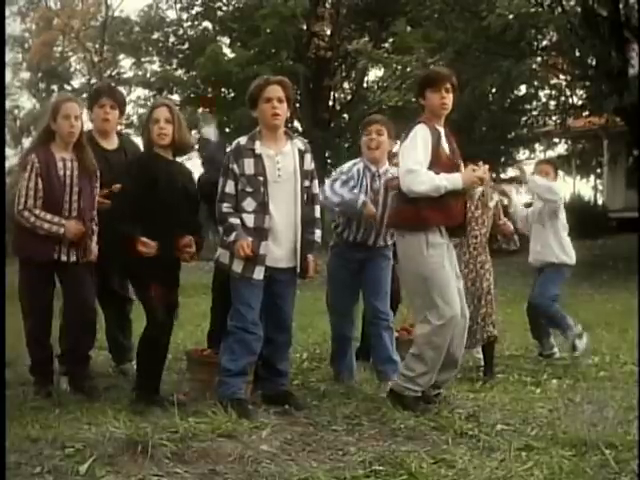
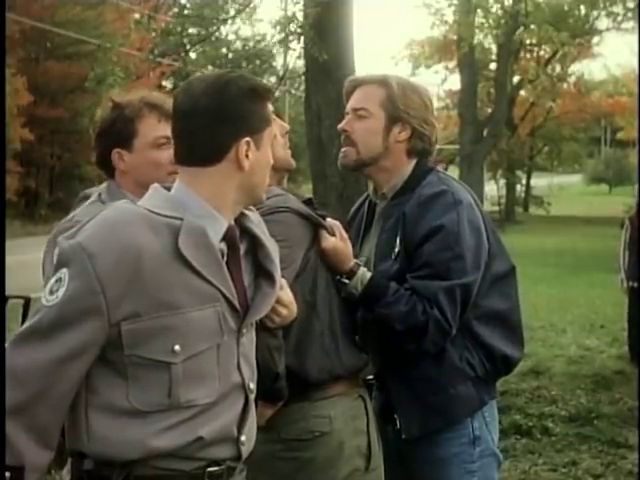
Kids of the Round Table (1995)
Film review #583
Director: Robert Tinnell
SYNOPSIS: Alex and his schoolfriends enjoy re-enacting the legend of King Arthur. Running away from some bullies, Alex stumbles upon a sword in a stone, which he pulls out and is revealed to be Excalibur, the legendary weapon of King Arthur. Merlin appears before Alex and explains how Excalibur may be used to give him the power to overcome his problems, but also that this power must only be used for good…
THOUGHTS/ANALYSIS: Kids of the Round Table is a 1995 film. The plot revolves around a kid named Alex who stumbles upon the sword in the stone from Arthurian legends. Removing the sword, Merlin appears to tell Alex that it is Excalibur, the sword of the legendary King Arthur, and will grant Alex the power to overcome his problems, but only if he uses the power for the right reasons. The plot of the film essentially revolves around Alex using the power of Excalibur, and the dilemmas that arise from it. It touches on a number of different points, but nothing with a depth that makes the plot points memorable or non-predictable. That said, there are a few scenes which explore the dilemmas with some strong and emotionally powerful dialogue, that give weight to what is happening.
A good portion of the film sets up a a love triangle between Alex, Jenny, and Luke, mirroring the same relationship between Arthur Guinevere and Lancelot in the Arthurian legends. Again, the dialogue that comes out of as a consequence of this is mature and impactful, and Malcolm MacDowell as Merlin offers some sage advice in a rare non-villain role. Despite this, a lot of the line deliveries, particularly from the kids and lesser known actors, are a bit flat. We never really get any depth from any of the characters, and they are just very surface-level personalities without a unique hook. The biggest issue the film faces is with the pacing: it has a fair amount going on at the beginning of the film setting out it’s premise then it just…stops. The film clearly has ideas, it just doesn’t push them at all. the finale of the film, featuring “Scar” (played by Michael Ironside) and his buddies taking Jenny and her friends hostage at her birthday party after the criminals have robbed a bank goes on forever: nearly half the film is dedicated to this part which unfolds so slowly it feels like a waste of runtime.
This film looks exactly like you would imagine a 90’s film would look like, and it doesn’t really distinguish itself in this way. One of the production aspects that definitely stands out is the score: the full orchestral pieces are really strong and moving, and again coupled with the emotional scenes, makes a good impact. Overall, Kids of the Round Table has some good moments and some decent cast members to support it, but seems to hold back in terms of fleshing out it’s concept more fully. This definitely has potential to be more than it is, but it keeps everything at a very surface-level exploration, as the characters don’t really develop into anything special, and the different setups don’t take advantage of the concept. Some good heartfelt moments, and a nice score grip the viewer at certain moments, but fail to add up to make the film something special.
-
#570 – Tank Girl (1995)
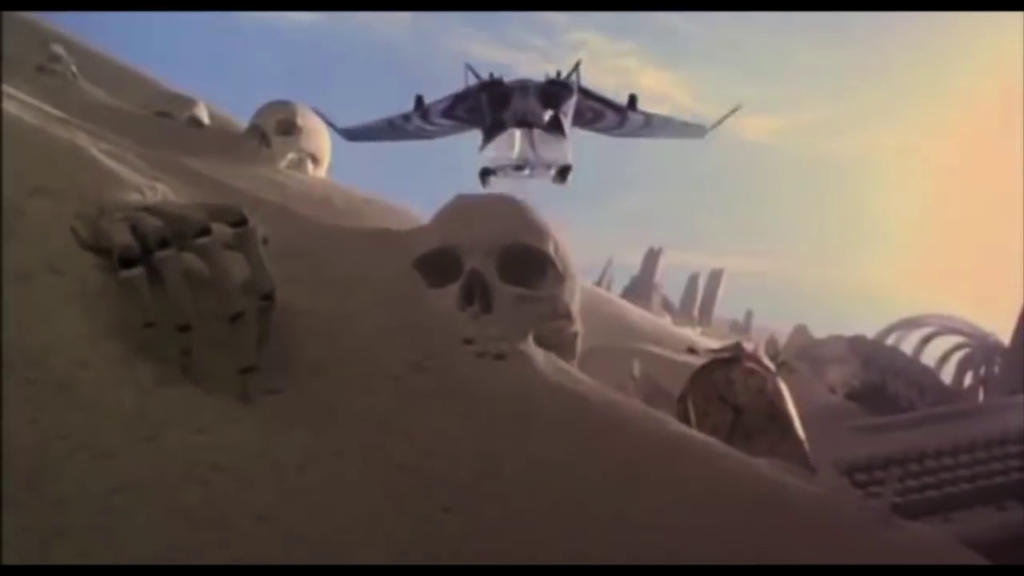
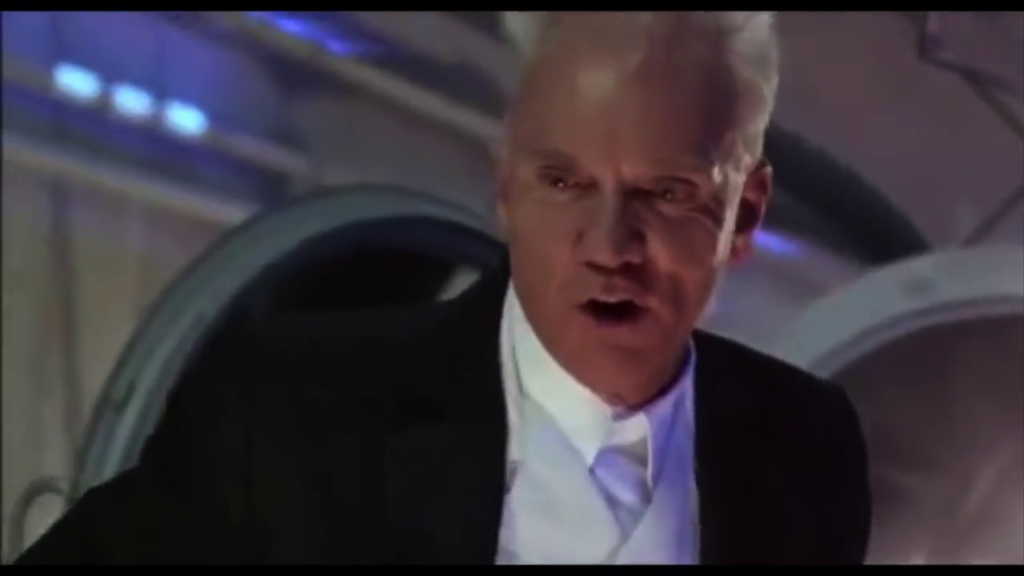
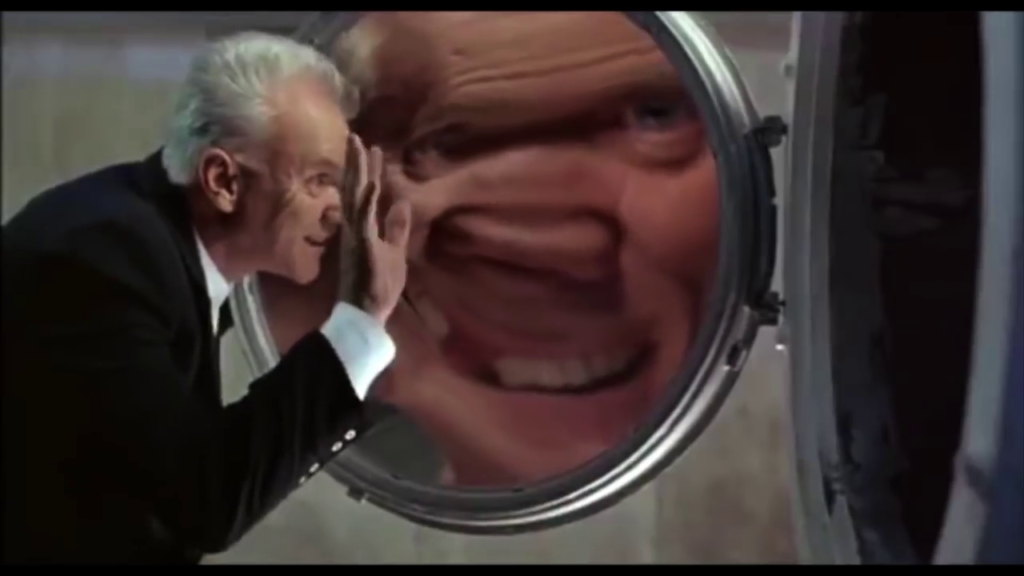
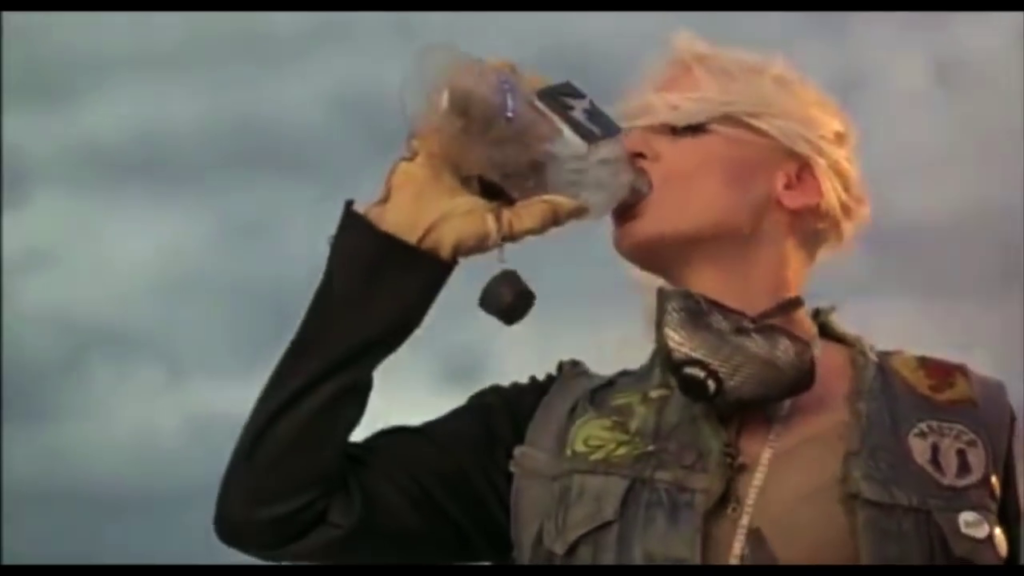
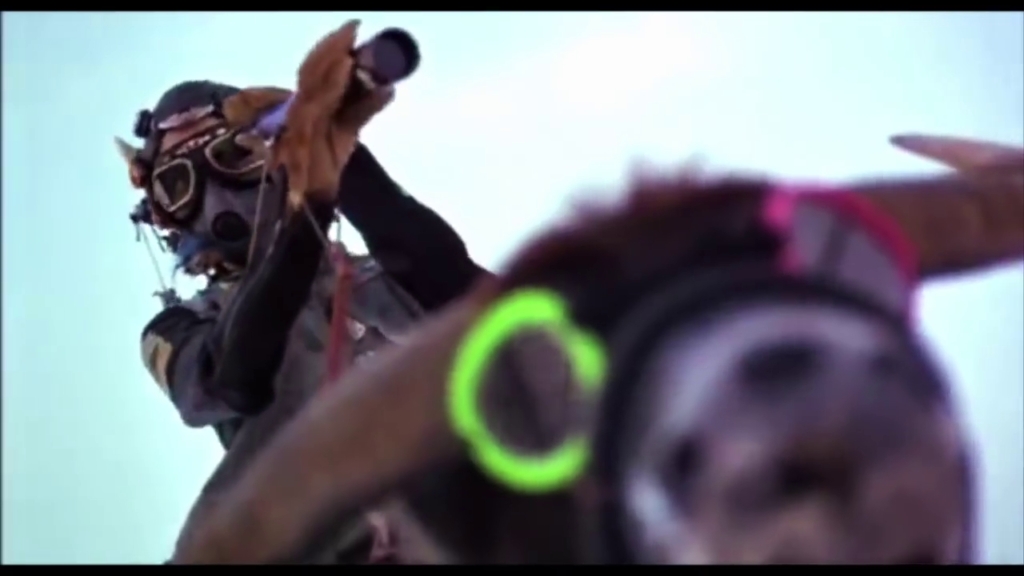
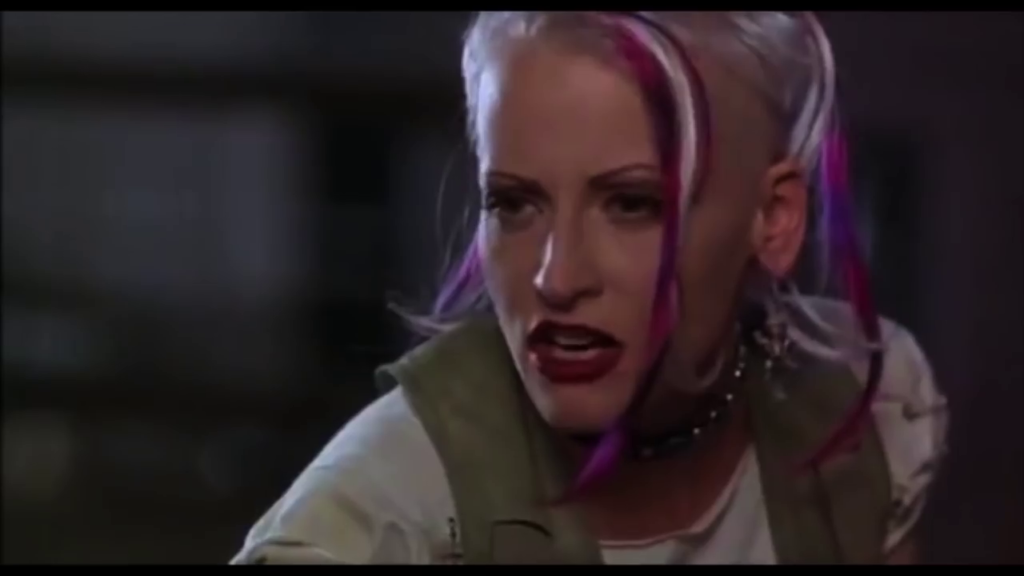
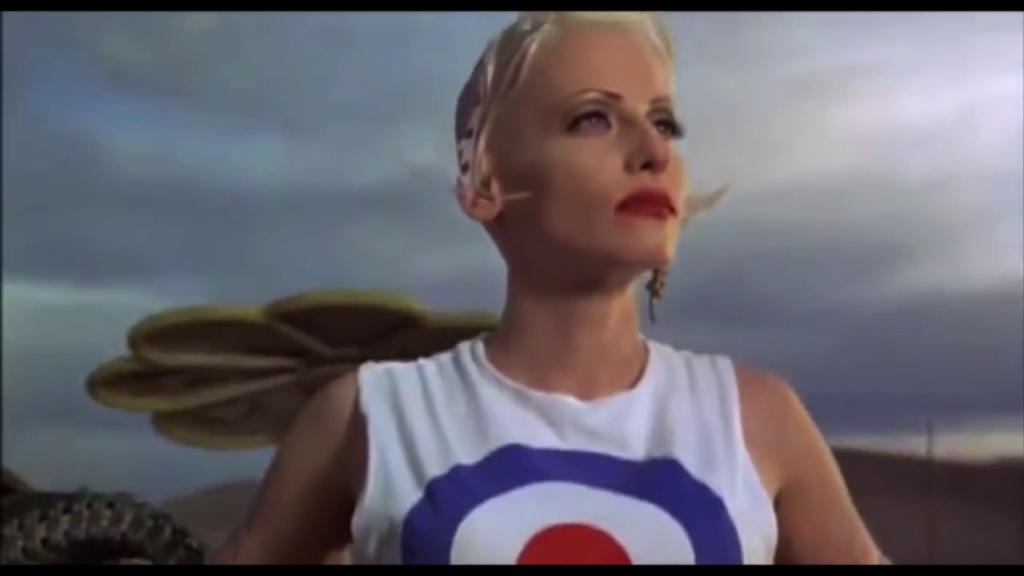
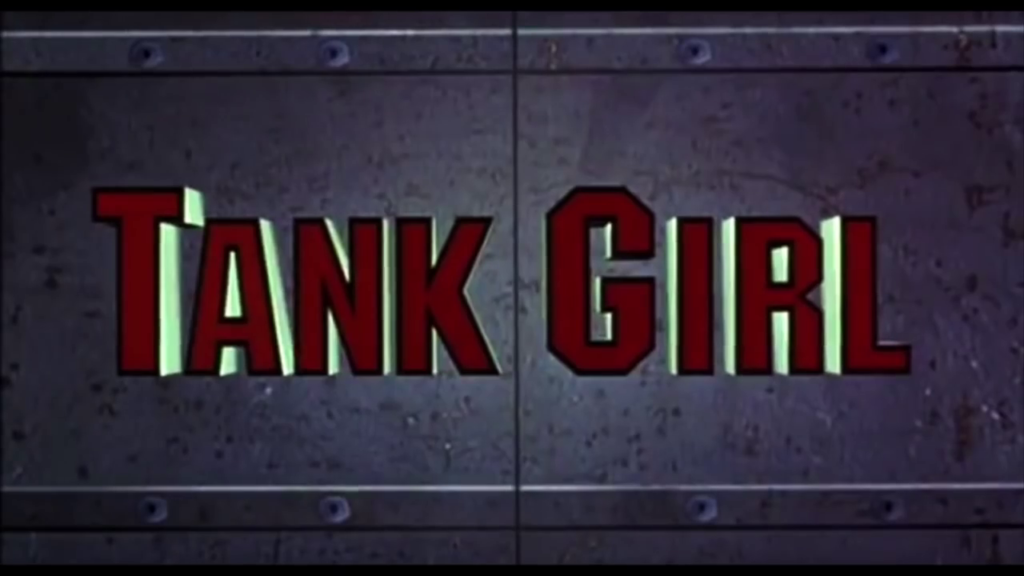
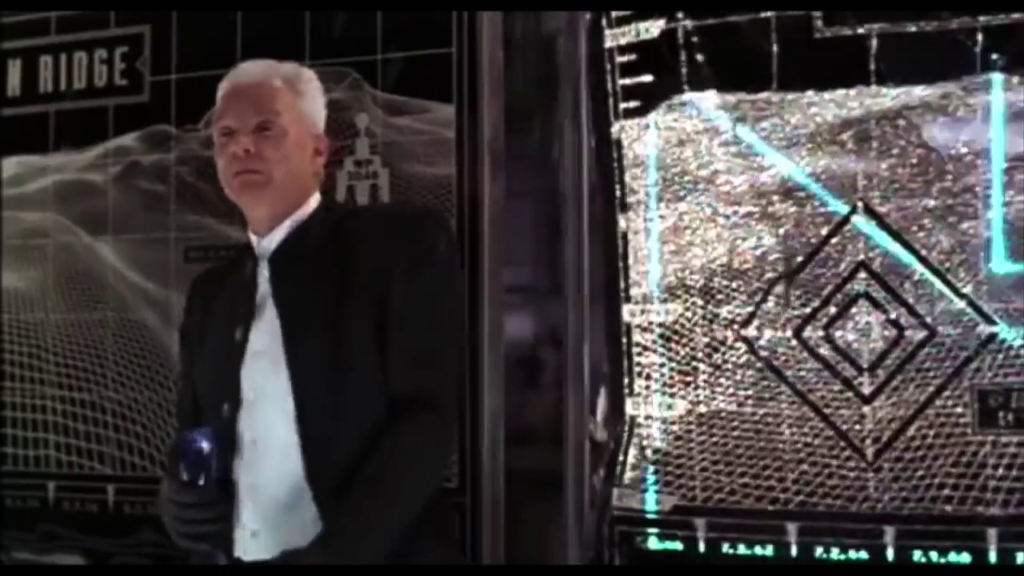
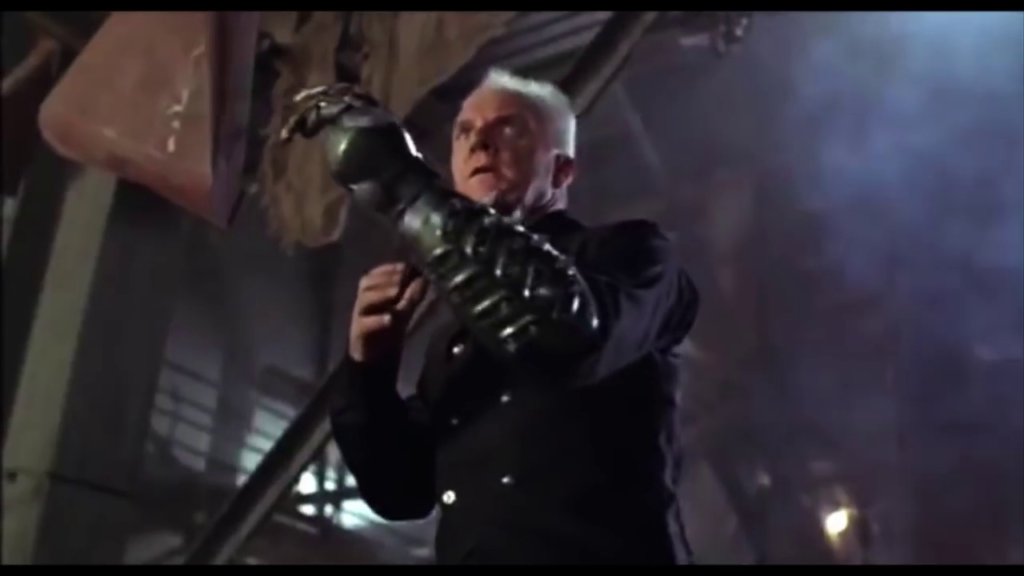
Tank Girl (1995)
Film review #570
Director: Rachel Talalay
SYNOPSIS: After a comet strikes the Earth, society is wiped out and water becomes a scarce resource. The Water and Power company is intent on controlling all of the world’s water, and when they find a group of wastelanders illegally siphoning water, they move in to put a stop to it. Tank girl, one of the survivors of the attack, is captured, but escapers and plots her revenge…
THOUGHTS/ANALYSIS: Tank Girl is a 1995 post-apocalypse film based on the comic book series of the same name. Set in the year 2033, some years after a comet wiped out all society on Earth, water has become a scarce and precious commodity. The Water and Power company is aiming to have control over all of the water, and taking out anyone who gets in their way. A group of people living in the wasteland are siphoning water from the company’s supply, and when they are found out, raid the compound, taking Rebecca, one of the residents prisoner, and killing the rest. Impressed with her talents, the Water and Power Company boss Kesslee wants to hire her for a mission, but Tank Girl refuses, and so she is locked up until she changes her mind. Managing to escape with the help of an introverted mechanic known only as Jet Girl, Tank Girl looks for a way to take revenge against the company. The setting of the film is a familiar post-apocalypse one, with ruins and deserts as far as the eye can see. The story itself is also pretty simple: rescue the girl and stop the bad guy. The film thrives on its simple beats and being chaotic, but the trouble with the film format is that it requires a direction and a structure, which ultimately, Tank Girl just doesn’t do, nor does it seem to want to.
Every character has essentially one dimension to them, and their roles are firmly set in stone throughout the film. There’s points in the film where there is some attempt to give Tank Girl some motivation and background, but it only really serves to make you question the bizarre and over-the-top antics, when you could just revel in them. There isn’t too much of this, but it does slow down the film at points. As mentioned, the characters are very one-dimensional, and this has some good and bad points: Tank Girl’s constant quips in every situation keep the film from getting dragged down and too serious, but this also has the effect of making her character very predictable: every situation she faces, you know that she’ll just brush it off with a dismissive quip, and in some ways makes her chaotic character a bit more predictable. Jet Girl provides a nice counterbalance to Tank Girl personality-wise, but their relationship again doesn’t go any deeper than that. Malcolm McDowell is Malcolm McDowell as the villain: no frills, no nonsense, just a classic villain, and there’s nothing wrong with that.
The film really revels in both its comic book origins and punk aesthetic. Moments of the film are done in the style of comic panels that are colourful and chaotic, but there’s a strange randomness to them in the sense you never know when they’re going to come in, and there’s large chunks of the film where they just don’t appear to make them a consistent storytelling device. You get the feeling that they’re using these comic panels to avoid actually filming scenes and cutting corners, and the director confirmed that there were whole scenes unfilmed and replaced with these comics instead: resulting in these panels taking you out of the action, and returning you in a completely different scenes without threading them together. The whole punk aesthetic is quite cool, and gives the film an edge: the soundtrack is packed with punk tracks, and the chaotic costumes lean into that scene. I think the main issue with the film is the overwhelming smell of studio interference. It feels like Tank Girl constantly wants to revel in much more sex and violence (as it does in the source material), but it always just falls short: kills are always a little bit obscured or done offscreen, and any reference to sex or nudity never goes as far as it should, and it feels like there’s an artificial limit on it, almost as if toy keep the film in a certain age rating. Again, the director often mentions that there was a lot of studio interference in this film, which probably resulted in it being restrained in the final cut. Overall, Tank Girl has a lot of anarchic energy and leans heavily on the comic book and punk aesthetics to make itself stand out. It’s certainly not for everyone: I imagine the very one dimensional characters and predictable quips may not be to everyone’s taste, but there’s enough energy and decent performances to at least keep it interesting. Regardless, there’s definitely an issue with the film constantly feeling like it was toned down, and is not allowed to be as gory or explicit as it wants to be in line with the source material. There are still plenty of people that like this film though, and I think it’s one that is going to be strictly down to personal preference, and whether the punk and chaotic aesthetic appeals to you or not.